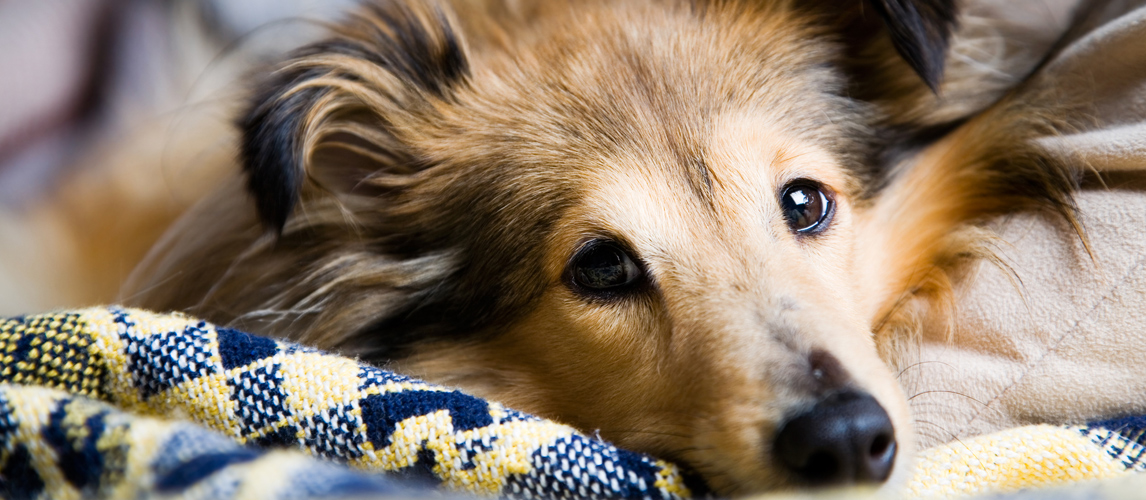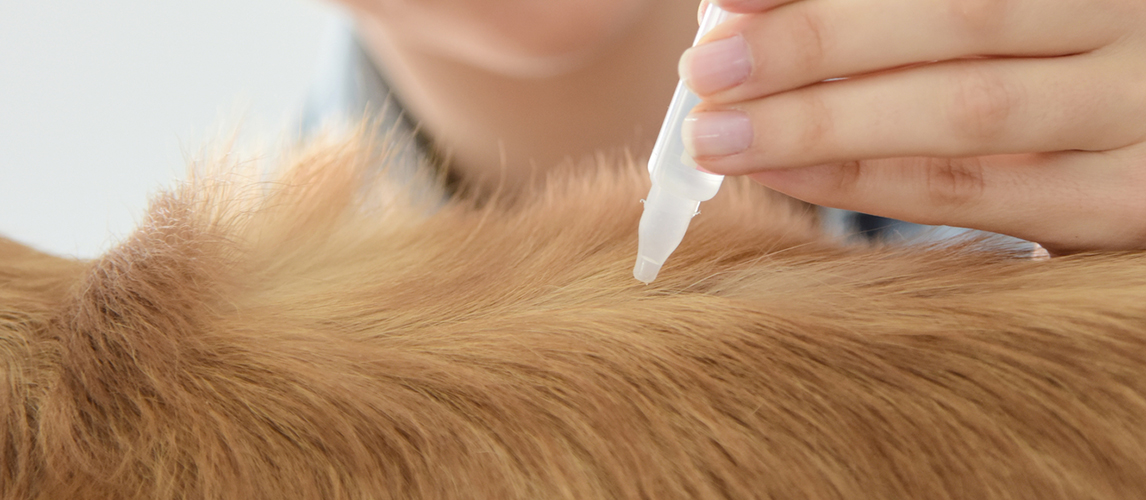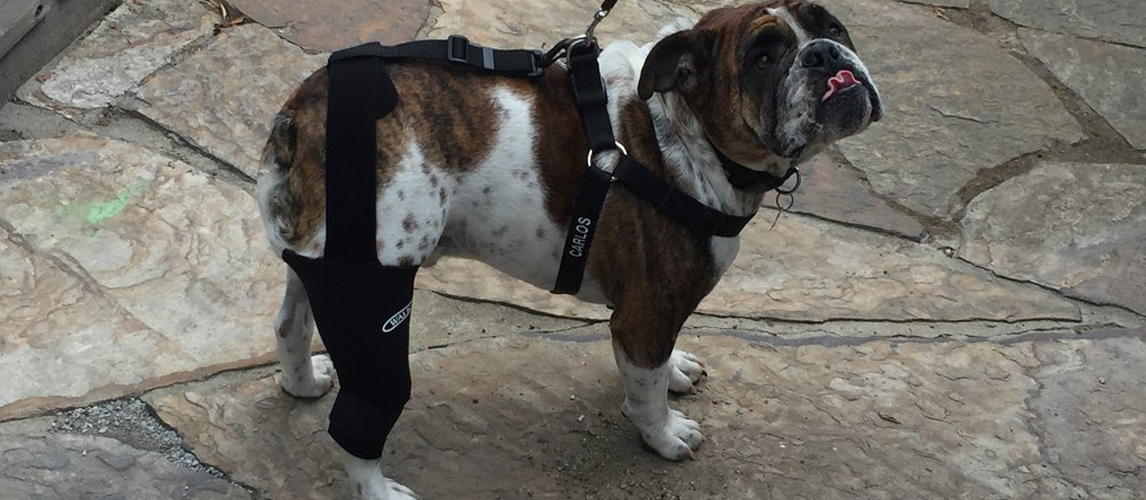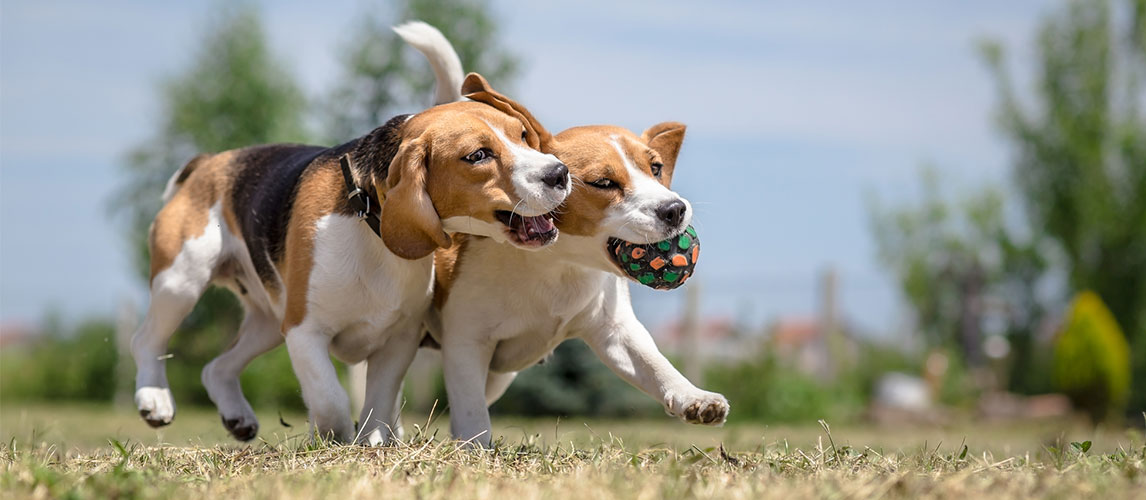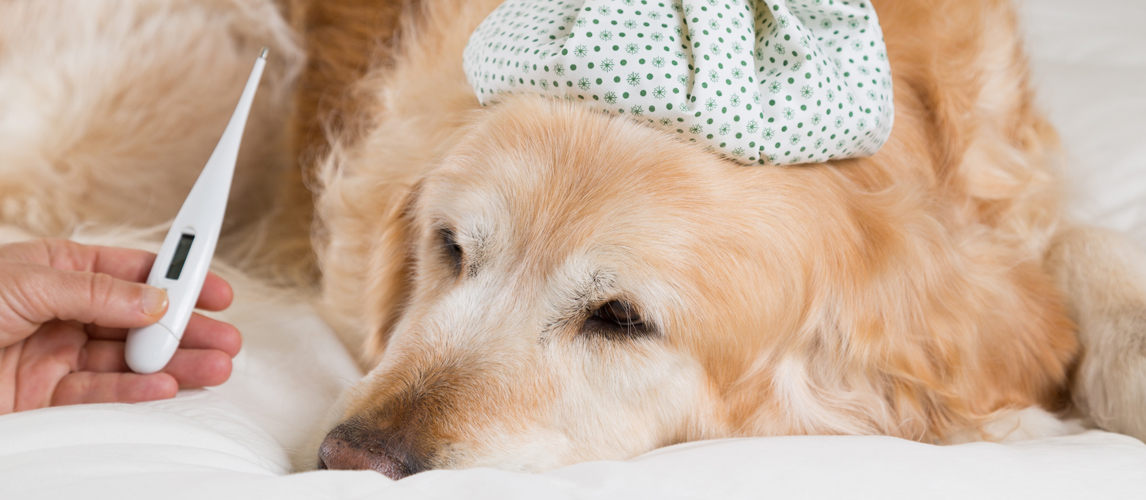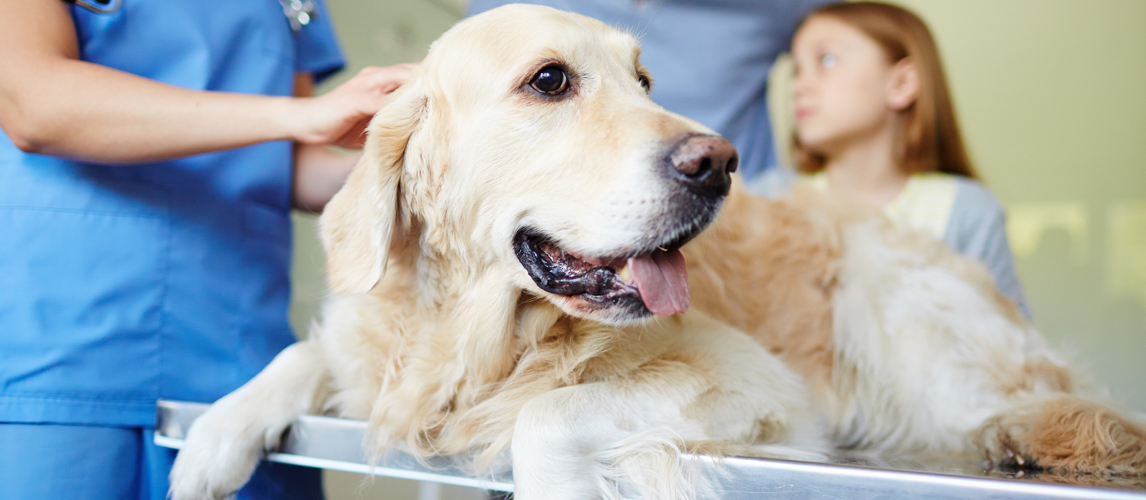Lactose intolerance is no laughing matter. It’s uncomfortable and can lead to significant gastrointestinal problems. So if you think your dog might be lactose intolerant, be sure to familiarize yourself with the signs so that you can ensure they get the proper care as soon as possible. This usually means changing your dog’s diet to avoid lactose altogether, though some lactose-intolerant dogs may require additional treatment to help them cope with their food intolerance.
If you’re unsure of how to recognize lactose intolerance in dogs, we’ve put together this guide to make it a little easier for you and to hopefully help you figure out what your next step should be.
What is Lactose Intolerance?
Lactose intolerance is actually extremely common, not only in dogs and cats but in humans as well. Any milk-weaned creature has a genetic predisposition to developing lactose intolerance once they’re no longer being breastfed. Though interestingly, cats are more likely to develop lactose intolerance than dogs. It is also something seen predominantly in adult dogs (though it can be seen in young puppies on rare occasions).
Lactose intolerance starts when the enzyme needed for processing milk is reduced. The enzyme, called lactase, is initially produced in high numbers, as newborn puppies will drink their mother’s milk exclusively. This enzyme is essential to the efficient running of their digestive system as it breaks down the sugars in lactose, which are then absorbed into the body to produce energy that supports all areas of growth and development.
When a puppy is weaned from its mother and it is no longer drinking dog milk regularly, the need for them to produce lactase is significantly reduced, therefore the production of the enzyme is lessened. Once the dog has lost a large portion of its ability to process the dairy products it consumes, they may find that some of the lactose sugar they would have originally broken down and absorbed with ease, stays sat in the intestines. It is here that the lactose sugar will ferment – leading to cramps, runny stools, bloating, and overall discomfort.
It’s important to note that not all dogs develop lactose intolerance and can eat dairy products with no problems. But for those that do, drinking milk is definitely off the table, along with the use of dairy products as training aids or food toppers.

Signs/Symptoms of Lactose Intolerance in Dogs
With dogs, lactose intolerance can be a source of real discomfort and usually has outward signs that you can spot if you know what you’re looking for. Though it’s worth noting that a food intolerance such as lactose intolerance looks pretty much identical to other food intolerances from the outside. So it’s important to note what your dog has been eating prior to the following symptoms being displayed:
- Lethargy
- Irritability
- Inability to get comfortable
- Bloated and firm stomach
- Watery loose stool (colitis)
- Vomiting
- Dehydration
- Weakness
- Excessive thirst
- Unwanted weight loss
With particularly young dogs it can be more difficult to tell if you’re not as adjusted to the way that they would ordinarily behave. But an adult lactose intolerant dog can be more easily spotted as you’ll be more used to their ordinary behavior and able to spot the differences.
The Difference Between Lactose Intolerance and Dairy Allergies
A true milk allergy will have significantly different symptoms when compared to an intolerance. Intolerances generally lead to significant digestive upset, and discomfort. However, food allergies can be far more dangerous and tend to have different and potentially more life-threatening symptoms (like any food allergy, there is a chance of it being anything from mild irritation to hospitalization).
If your dog is showing any of the following signs alongside the above symptoms, it could be that they have an allergy to dairy:
- Rash
- Fur loss
- Facial swelling
- Excessive itching
- Excessive licking
- Biting at their own legs
- Hives
- Wheezing
- Difficulty swallowing
- Blood in the stool
It’s also possible that the allergy could be for cow’s milk specifically, not all dairy products, in which case you could switch to an alternative such as goat’s milk (or any other mammalian milk) or even soy or coconut milk.
Our, Best Dog Food for Allergies guide may come in handy. Check it out!
Causes of Lactose Intolerance in Dogs
The physiological cause of lactose intolerance in dogs comes down to the reduction of lactase production. There is no specific event that has to happen for lactose intolerance to become a problem. However, those with a predisposition to developing lactose intolerance are more likely to develop it if exposed to lactose on a regular basis (e.g. when cheese cubes are used as training exercises, or milk is given as an extra treat alongside their meal).
Adult dogs are more frequently affected than puppies and can be impacted by lactose intolerance at any age. For most dogs, lactose intolerance will first begin to rear its ugly head within their 1-3 years of life, during which time their body is maturing and their digestive system is developing to a consistent point.
However, it has been known to affect otherwise extremely healthy fully matured adult dogs as well as coming into play during their senior years, when the digestive system begins to slow down and metabolizing their food doesn’t go as smoothly as it once did.
Lactose Intolerance Trigger Foods
In terms of the dietary causes of lactose intolerance, there are several things that can trigger a reaction:
- Cow’s milk – cow’s milk is particularly high in lactose (around 5%) meaning it is a hard one for dogs to digest, especially if they’re lactose intolerant. Some dog owners prefer that their dogs drink milk from a different mammal instead (even if the dog is not lactose intolerant) as they’re lower in lactose.
- Baked human foods – such as pancakes, cookies, bread, cake.
- Processed human food – such as breakfast cereals, soups, instant potatoes, and flavored chips.
- Processed meats – such as bacon, lunch meat, sausages, and hot dogs.
- Cheese – this is often used as a training tool and can sometimes be overlooked. However, cheese should be avoided completely with lactose intolerant dogs.
Some of the low-lactose alternative options are sheep’s milk, cottage cheese, and feta cheese. However, if your dog is lactose intolerant, it’s better to go with lactose-free milk-based options or to remove dairy products from your dog’s diet altogether.
Diagnosis of Lactose Intolerance in Dogs
The only way to get an accurate diagnosis of lactose intolerance is to first watch your dog carefully for any of the symptoms after they have eaten or drank a dairy product. If you have observes one or more of the symptoms and they seem to be consistently making an appearance after your dog has had dairy, then you can move on to getting them diagnosed.
Contact your vet and have them brought into the clinic for a physical examination. Tell your vet everything you know already including any of the symptoms you have noticed and what exactly your dog had been eating when the symptoms started to appear. If possible, try to keep a food diary of any dog foods or snacks your pup has been eating and time recordings of which symptoms started at what times. This will give your vet a better idea of what is happening with your puppy.
Once you have spoken with your vet, the physical examination will likely entail your vet listening to and palpating your dog’s stomach and general abdomen to see if they can detect any signs of intolerance. They may also take blood and urine samples in order to rule out any other potential health problems such as parasites or infections. Though, for the most part, it is detected through time and effort on the owner’s part to closely monitor your pet and report back to them.
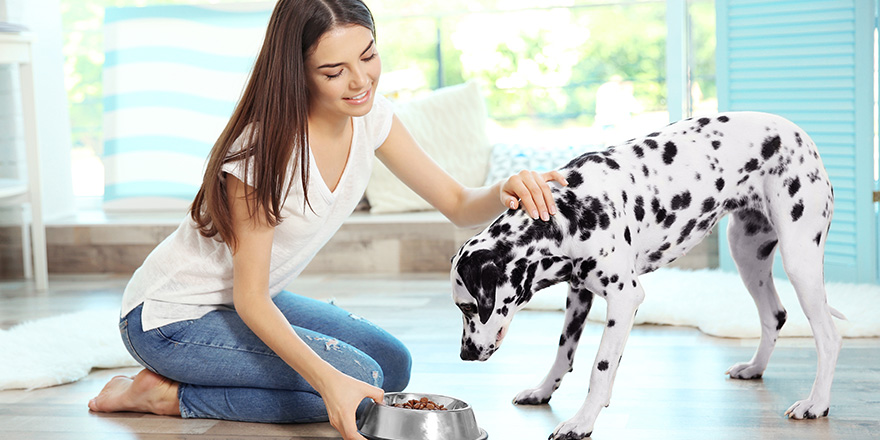
Treatment of Lactose Intolerance in Dogs
The primary form of treatment for lactose intolerance is food elimination. This means opting for lactose-free products, or products with reduced lactose content. Though preferably you should be removing dairy products altogether from your dog’s diet in order to avoid an adverse reaction.
Many dogs with lactose intolerance only experience mild symptoms. And if your canine companion really loves their dairy, you might find that with mild symptoms it’s just a case of reducing their lactose intake.
Most lactose intolerant dogs do not completely lose their ability to process lactose, but rather they have reduced lactate, meaning they can’t digest as much as they did as puppies. As a pet parent with an intolerant pup, you should be very careful to figure out how much lactose your little buddy can handle if you insist on continuing to provide them with dairy products.
Severe lactose intolerance will require the complete omission of dairy products and anything that might contain lactose (listed above). This means no leftovers from the dinner table and no sneaky snacks from the cupboard. You will need to stick with a strict diet that is carefully monitored to ensure your dog remains healthy and comfortable.
Additionally, your vet may prescribe lactase supplements or calcium supplements to help your dog digest their lactose more easily (especially with young dogs) as well as encourage healthy bone growth and skeletal development.
Medical Disclaimer
The contents of the www.mypetneedsthat.com website, such as text, graphics, images, and other material contained on this site (“Content”) are for informational purposes only. The Content is not intended to be a substitute for professional veterinarian advice, diagnosis, or treatment. Always seek the advice of your veterinarian with any questions you may have regarding the medical condition of your pet. Never disregard professional advice or delay in seeking it because of something you have read on this website.
Sources:
- Is Milk Bad for Dogs? – PetMD
- Colitis Causes Gooey Diarrhea in Dogs and Cats – Veterinary Partner – VIN
- Can dogs eat cheese? – Blue Cross
FAQs:
Yes. When a dog is no longer drinking its mother's milk, there is a chance it could develop lactose intolerance as a result of the lactase enzyme no longer being produced to the degree that it was during the breastfeeding stage.
Not necessarily. Though in some very rare instances dogs have died from having a severe reaction to dairy (usually caused by extreme bloat), dogs don't typically pass away as a result of lactose intolerance.
Not necessarily. It is possible for dogs to develop dairy allergies, in which case cheese would be off the table, as a dairy allergy has the potential to be extremely dangerous. However, not all dogs have dairy allergies or even lactose intolerance, and some are capable of eating a dairy product without any adverse reactions.
Some can. Some dogs can eat dairy without having adverse symptoms. However, we would recommend taking care when your dog is first consuming dairy as they may have a dairy intolerance. If they show any signs of reacting badly to the product you've given them, it could be that they do indeed have an intolerance and should therefore avoid dairy in the future.
If your dog shows signs of lactose intolerance, you would need to adjust your dog's diet to remove potential irritants. This means removing any dairy products from your dog's food (including dog dairy products) and monitoring them to see if they show signs of improvement.
It can be. Canine companions experiencing the symptoms of lactose intolerance are more likely to come uncomfortably due to their bloated stomachs. If the bloating gets bad enough it can cause cramping which leads to diarrhea. This cramping can become quite painful if left uncared for.
Not most, but many are to some degree. All mammals lose lactate when they are weaned from their mother's milk. As a result, dogs, cats, and humans are all susceptible to developing lactose intolerance as they get older.
Yes. If your dog is a lover of milk and you're not wanting to completely remove it from their diet, you can opt to use lactose-free milk instead. This can be especially helpful for people that are having to hand-rear young pups that are struggling with particularly harsh lactose intolerance (which can happen, though it is rare).


